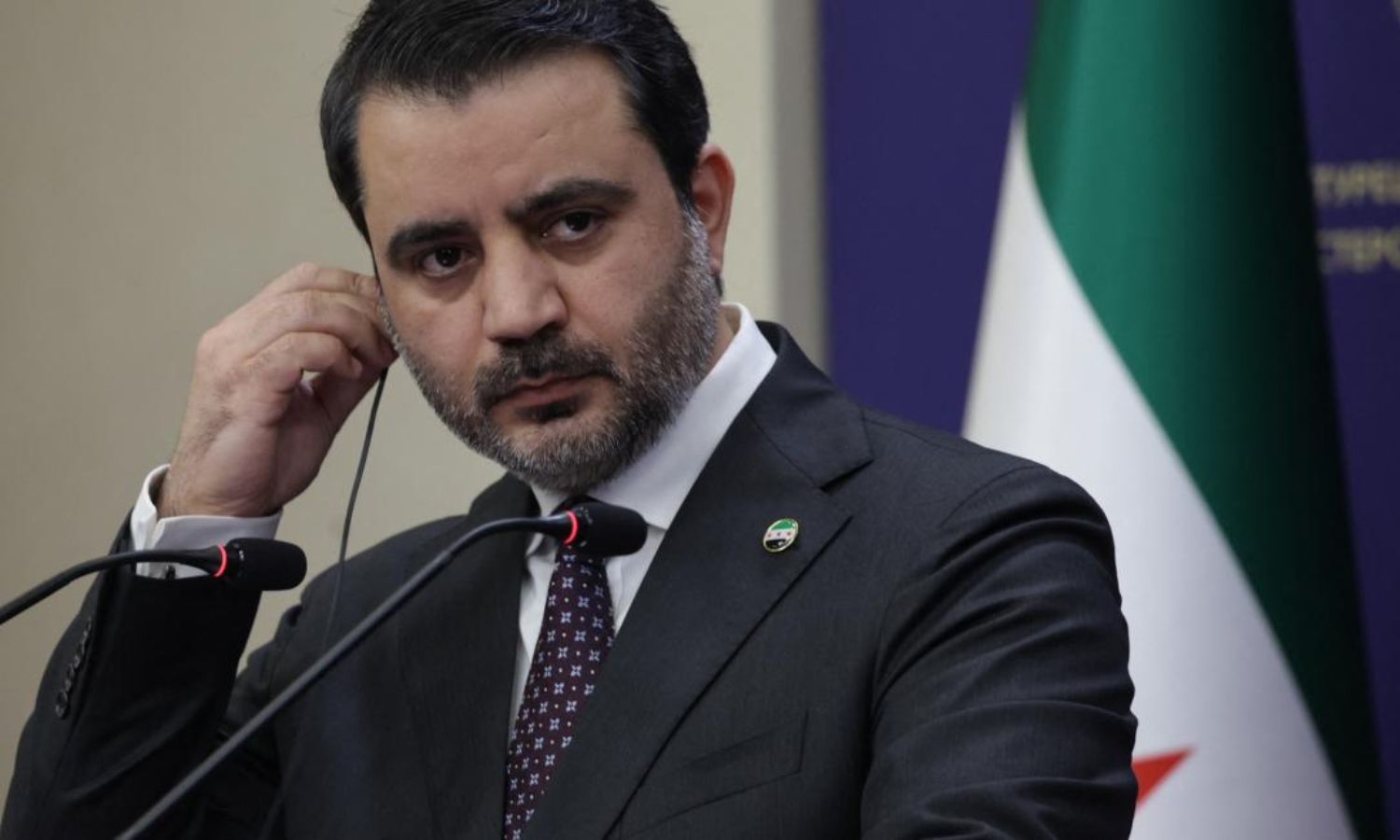The new Syrian administration is planning economic reforms to shed decades of isolation as a “pariah state,” said Asaad al-Shibani, foreign minister in the interim government in Damascus. These reforms include privatizing state-owned ports and factories, attracting foreign investment, and boosting international trade.
Shibani told the Financial Times on Wednesday, January 22, that the government is exploring public-private partnerships to stimulate investments in airports, railroads, and roads. However, he acknowledged the significant challenge of finding buyers for enterprises that have languished in a state of decline in a country “broken and isolated from foreign investment.”
Shibani’s comments came during Syria’s first-ever participation in the Davos Economic Forum. He described his presence as an opportunity to present the new Syrian administration’s developmental vision for the country’s future and the aspirations of its people. He contrasted this vision with the ousted Assad regime’s focus on state security at the expense of economic progress.
The foreign minister emphasized the need for clear legislation and consistent messaging to attract foreign investors and encourage Syrian expatriates to return and invest in rebuilding the country.
Shibani also revealed that officials from the former regime disclosed the extent of the economic damage inflicted during the Assad era, which operated under a “closed socialist economy.” This included $30 billion in debts to Iran and Russia, depleted foreign exchange reserves, an inflated public sector payroll, and significant neglect of the agriculture and industrial sectors.
He described the challenges ahead as “enormous” and announced that the new administration is forming a committee to assess the country’s economic and infrastructure needs.
Lifting Sanctions
According to the Financial Times, Shibani’s participation in the Davos forum provides an opportunity to renew calls for lifting sanctions imposed during Bashar al-Assad’s rule. He argued that these sanctions hinder Syria’s economic recovery and deter foreign investment.
Shibani emphasized that recovery is an urgent priority, including securing basic necessities such as bread, water, electricity, and fuel for a population pushed into poverty by Assad’s rule and international sanctions.
“We don’t want Syria to survive on aid or for countries to treat investments like ‘throwing money into the sea,’” Shibani said. He called for easing European and U.S. sanctions on Syria and Hay’at Tahrir al-Sham, the core of the new Syrian administration.
Some European countries are reportedly considering easing sanctions on the former regime, which remain in effect despite Assad’s ousting. On January 20, Reuters reviewed two internal EU documents outlining a policy to support Syria’s political transition and discuss lifting some sanctions.
The United Nations High Commissioner for Refugees (UNHCR) has also called for lifting sanctions to revitalize Syria’s economy and restore essential services.
Reassurances to Arab and Western States
Shibani reiterated assurances to Arab and Western nations that the new administration does not pose a threat, emphasizing that Damascus has no intention of exporting revolution or interfering in other countries’ affairs.
He stated that the new administration seeks to build regional alliances as a foundation for Syria’s prosperity. His remarks echoed those of Ahmad al-Sharaa, the leader of the new Syrian administration, who previously emphasized a commitment to state-building over revolutionary activities.
Sharaa told Asharq Al-Awsat on December 20, 2024, “The Syrian revolution ended with the fall of the regime. We will not allow it to be exported elsewhere, and Syria will not serve as a platform to threaten or disrupt any Arab or Gulf state.”
Northeast Syria
Shibani described Syrian-Turkish relations as “special,” noting that they provide an opportunity for Syria to benefit from Turkey’s technological expertise, regional influence, and ties with European nations.
However, he dismissed concerns that these relations would grant Turkey undue influence or allow territorial expansion within Syria.
On northeastern Syria, Shibani declared that the presence of the Syrian Democratic Forces (SDF) is no longer justified. He emphasized that the new authorities are committed to guaranteeing Kurdish rights and representation in the government.
The Damascus government has also expressed readiness to take over SDF-run prisons holding thousands of Islamic State (IS) detainees.
Discussions are ongoing regarding the integration of the SDF into the new Syrian army. While the SDF seeks to join as a unified entity without disbanding, the Damascus administration insists that its members integrate individually under the Ministry of Defense.
This article was translated and edited by The Syrian Observer. The Syrian Observer has not verified the content of this story. Responsibility for the information and views set out in this article lies entirely with the author.


